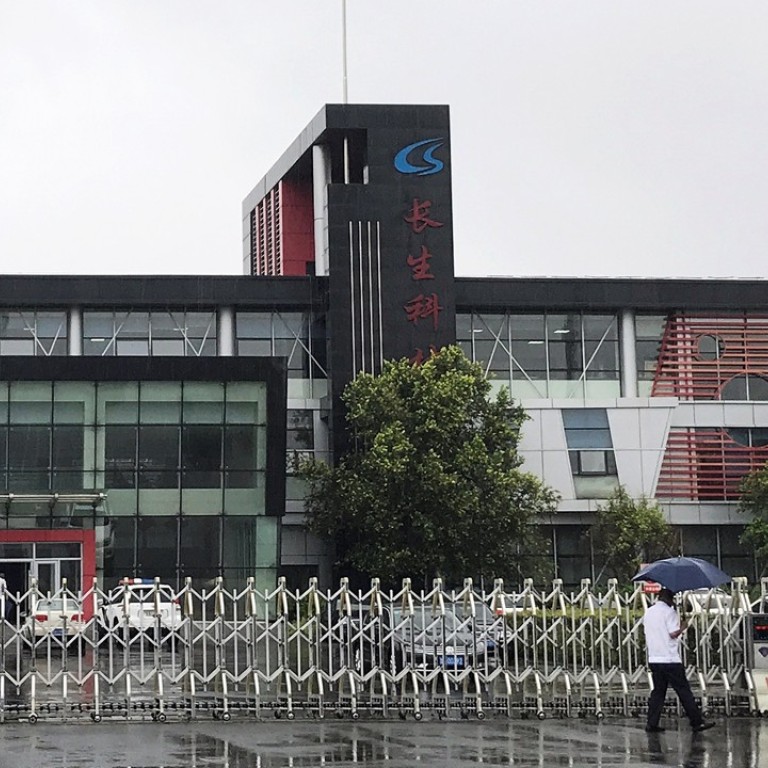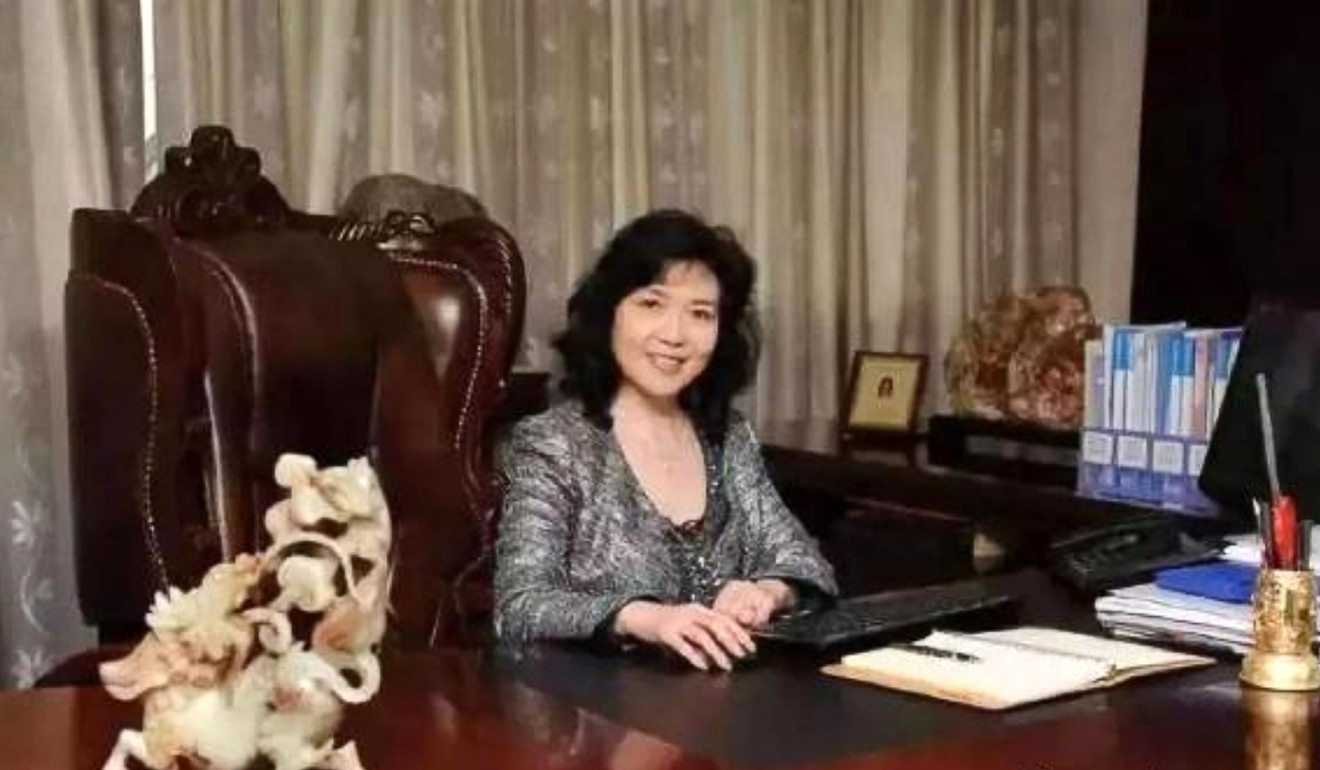
Troubled Chinese vaccine maker Changsheng faces delisting for endangering public security under revised rules
- Changsheng Bio-Technology, country’s second-largest vaccine producer, was fined US$1.3 billion for falsifying data and selling ineffective vaccines in July
- According to revised rules, breaches that endanger national security, public health can lead to mandatory delisting
Mainland China vaccines producer Changsheng Bio-Technology, which was fined 9.1 billion yuan (US$1.3 billion) for falsifying data and selling ineffective vaccines in July, has become the first company to face a possible delisting under revised rules that give mainland stock exchanges the power to throw out companies endangering public and national security.
On the basis of revised regulations issued by stock exchanges in Shanghai and Shenzhen, delisting procedures have been triggered at Changsheng as it may face a mandatory delisting, the bourse in Shenzhen said on Friday.
Embattled Chinese vaccine maker Changsheng Bio-technology risks delisting as big shareholders are barred from selling shares
The company, based in Changchun, in northeast China, applied for a trading halt on its shares from Monday “to protect investor interest and avoid unusual price volatility in view of the delisting risk it faces after law violations”, in a filing with the Shenzhen Stock Exchange late on Friday.
In July, it was found to have systematically forged the production and inspection data for about 113,000 rabies vaccines, and made about 252,600 ineffective vaccines for diphtheria, whooping cough and tetanus that were given to hundreds of thousands of babies. Eighteen people, including chairwoman Gao Junfang, fellow executives and others associated with the company – at the time China’s second-largest vaccine producer – have been under arrest since July 23.
Late on Friday, the stock exchanges in Shanghai and Shenzhen issued revised listing rules, which for the first time categorically specify breaches that endanger national security, public health and ecological, work and public safety as grounds for mandatory delisting.
The rules, which came into effect the same day, were put to public consultation in July, following an edict issued by watchdog China Securities Regulatory Commission on new delisting requirements the same month.
The revised regulations “simplify procedures of, quicken the pace of and increase efficiency of mandatory delistings”, said the Shenzhen bourse, adding that it had already started delisting procedures for Changsheng.
The prefix “ST”, denoting special treatment, was added to the company’s stock code on July 26 to warn investors of risks related to delisting, after it was forced to halt all sales and production following revocation of permits to conduct such activities.

The company has also failed to publish financial results for the year’s first half and third quarter. Monday’s latest trading halt takes it a step closer to delisting.
The Shenzhen bourse said it will release a “preliminary opinion” on Changsheng’s delisting within 15 trading days, and that the trading halt may last up to six months. Once a final decision is made to remove the company from the market, its shares will be allowed to resume trading for no more than 30 days before the delisting.

